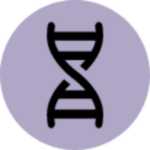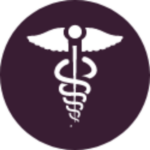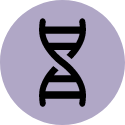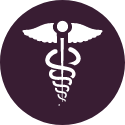COMBINING EXPERTISE FOR EFFECTIVE JUSTICE
The Bureau of Justice Assistance (BJA) provides federal funding through multiple forensic science programs to combat violent crime, resolve cases, lower recidivism, increase public safety, and enhance justice. In collaboration with BJA, the Forensics Training and Technical Assistance (Forensics TTA) Program, led by RTI International, offers a team of subject matter experts who provide expertise and assistance to grantees in support of BJA’s overall mission to strengthen America’s criminal justice system.
Check out the 2026 Forensics TTA Calendar of National and Regional Events!
This downloadable resource provides a centralized view of national and large-scale regional conferences, trainings, and other events of interest to BJA Forensics Programs grantees occurring in 2026.
The 3rd Annual BJA Forensics Programs Grantees Meeting archive is now available!
The event archive, which includes recorded sessions, PDFs of slide decks, and accompanying resources, is now available for on-demand viewing.
Take a look at the Accreditation Document Repository for Medical Examiner and Coroner (ME/C) Offices today!
This repository provides a collection of example policies, procedures, and related documents to support ME/C offices in achieving accreditation.
Congratulations and welcome to all BJA Forensics Programs FY24 Grantees!
KEY PERFORMANCE METRICS

DNA Capacity Enhancement for Backlog Reduction (CEBR) Program
- More than 1.6 million cases completed
- More than 3.9 million database samples completed
- More than 706,000 forensic (crime scene) profiles uploaded to Combined DNA Index System (CODIS)
- More than 3.7 million databasing profiles uploaded to CODIS
- More than 341,000 CODIS hits

Missing and Unidentified Human Remains (MUHR) Program
Since its inception in 2022, MUHR Program funds were used to:
- Make 24 identifications via Combined DNA Index System (CODIS) associations
- Make 13 identifications via direct DNA comparisons
- Make 21 identifications via other methodologies such as fingerprints
- Repatriate 39 cases to relatives or next of kin

Paul Coverdell Forensic Science Improvement Grants (Coverdell) Program
From FY2011-FY2021 Coverdell Program funds were used to:
- Analyze more than 1.8 million backlogged cases resulting in more than 350 agencies decreasing their backlogged cases
- Support more than 19,000 forensic personnel, more than 2,000 medical examiners/coroners, and more than 40 pathologists (FY2021 only) to attend training
- Help more than 400 agencies improve their timeliness in case analysis
- Enable more than 20 agencies obtain initial accreditation between FY2017-FY2021
- Assist more than 40 forensic personnel complete certification in FY2021
- Identify the presence of controlled substances in more than 85% of seized drug cases tested in FY2021

Postconviction Testing of DNA Evidence (Postconviction) Program
- More than 55,000 new cases reviewed and more than 125,000 continuing cases reviewed with current and previous grant funding
- More than 740,000 hours of case review performed, representing an estimate of more than 350 work years
- More than 2,200 cases where DNA analysis was performed
- More than 350 profiles uploaded to Combined DNA Index System (CODIS) and more than 100 CODIS hits
- 65 exonerations have resulted from this program representing more than 1,200 years served in prison

Prosecuting Cold Cases Using DNA (COLD) Program
Since 2019, COLD Program funds were used to:
- Upload multiple suspect profiles to Combined DNA Index System (CODIS), Integrated Automated Fingerprint Identification System (IAFIS/AFIS)
- Identify 94 suspects who were initially unknown
- Prosecute 20 cases that have resulted in convictions
- Identify 39 suspects via Forensic Genetic Genealogy work
- Charge or indict 66 cases
- Resolve 83 cold cases

Strengthening the Medical Examiner-Coroner (ME/C) System Program
Fellowship/Purpose Area 1:
- 64 fellowships funded
- 49 participants completed fellowship training
- 11,798 deaths investigated by fellows
- 12,893 autopsies performed by fellows
Accreditation/Purpose Area 2:
- 148 individuals sought certification
- 31 individuals achieved certification
- 15 organizations achieved accreditation
PROGRAMS

DNA Capacity Enhancement for Backlog Reduction (CEBR) Program
The CEBR Program provides federal funding for publicly funded accredited forensic DNA laboratories to process, and increase capacity to process, eligible samples for entry into the Federal Bureau of Investigation’s (FBI’s) Combined DNA Index System (CODIS).

Missing and Unidentified Human Remains (MUHR) Program
The MUHR Program provides federal funding to eligible entities so they can improve reporting, transportation, forensic testing, and identification of missing persons and unidentified human remains in the United States, including migrants.

Paul Coverdell Forensic Science Improvement Grants (Coverdell) Program
The Coverdell Program provides federal funding for states and local government units to improve the quality and timeliness of forensic science and medical examiner/coroner (ME/C) services.

Postconviction Testing of DNA Evidence (Postconviction) Program
The Postconviction Program provides federal funding for states and local government units to defray the costs associated with postconviction DNA testing in cases of violent felony offenses (as defined by state law) in which actual innocence might be demonstrated.

Prosecuting Cold Cases Using DNA (COLD) Program
The COLD Program provides federal funding for agencies to resolve violent cold case crimes by providing them with resources to investigate and prosecute cases where a suspect’s DNA profile has been generated.

Strengthening the Medical Examiner-Coroner (ME/C) System Program
The ME/C Program provides federal funding to help address medicolegal death investigation (MDI) workforce needs to increase the number of practicing board-certified forensic pathologists and to support ME/C offices’ needs to implement and follow quality standards and performance criteria in an effort to provide a consistent and equitable application of MDI services.
HIGHLIGHTS
Live Facebook Feed

Program Success! Using funding from BJA’s Strengthening Medical Examiner/Coroner (ME/C) System Program, the Dekalb County Medical Examiner’s Office was able to prepare and apply for accreditation through the Accreditation Council for Graduate Medical Education (ACGME). These funds enabled them to prepare the necessary physical space for a fellow, acquire a multiheaded microscope, develop a robust educational lecture series for incoming fellows, cover the associated accreditation fees, and support other requirements for ACGME accreditation. Learn more about this program success: ow.ly/sIr250Y7IPJ #medicalexaminer #coroner #medicolegal #investigation #accreditation #forensics #forensicscience #training #fellowshipprogram #education #fellows DeKalb County Medical Examiner's Office ... See MoreSee Less

From the Forensics TTA Vault: In September 2025, Forensics TTA hosted a webinar featuring experts from local Medical Examiner/Coroner (ME/C) offices who shared how they collaborate with identification specialists in anthropology, odontology, DNA, and fingerprints. Their insights offer practical guidance on how to work effectively with these experts and maximize the value they bring, especially when navigating unusual or complex cases. Catch the full recording and dive into their strategies and lessons learned: ow.ly/8Vh550Y5COP #medicalexaminer #coroner #medicolegal #investigation #forensics #forensicscience #forensicanthroplogy #deathinvestigation #ForensicOdontology #ForensicDNA #fingerprints American Academy of Forensic Sciences; International Association of Coroners and Medical Examiners - IACME; National Association of Medical Examiners ... See MoreSee Less

Today we recognize World Anthropology Day, including the powerful impact anthropology has on advancing forensic science. From innovative analytical methods to techniques that help identify unknown individuals, the intersection of these fields continues to strengthen investigations and resolve cases. We also recognize the vital work of BJA’s Strengthening the Medical Examiner‑Coroner (ME/C) System Program, which supports ME/C offices nationwide in delivering consistent, high‑quality services—including the use of forensic anthropology to analyze and identify skeletal remains. Explore the purpose and impact of the ME/C Program and how it’s helping communities across the country: ow.ly/xZL350Y5C35 #AnthroDay #AnthropologyDay #WorldAnthropology #medicalexaminer #coroner #medicolegal #investigation #forensics #forensicscience #forensicanthroplogy #deathinvestigation American Academy of Forensic Sciences; International Association of Coroners and Medical Examiners - IACME; National Association of Medical Examiners ... See MoreSee Less
Get timely
FORENSICS TTA PROGRAM updates
The Forensics TTA Team wants to hear from you!
If BJA Forensics Programs funding has played a role in your organization’s success, no matter how small or how large, we would love to hear about it! Please share your achievements with the Forensics TTA Team by clicking the ‘Submit Highlight’ button.
